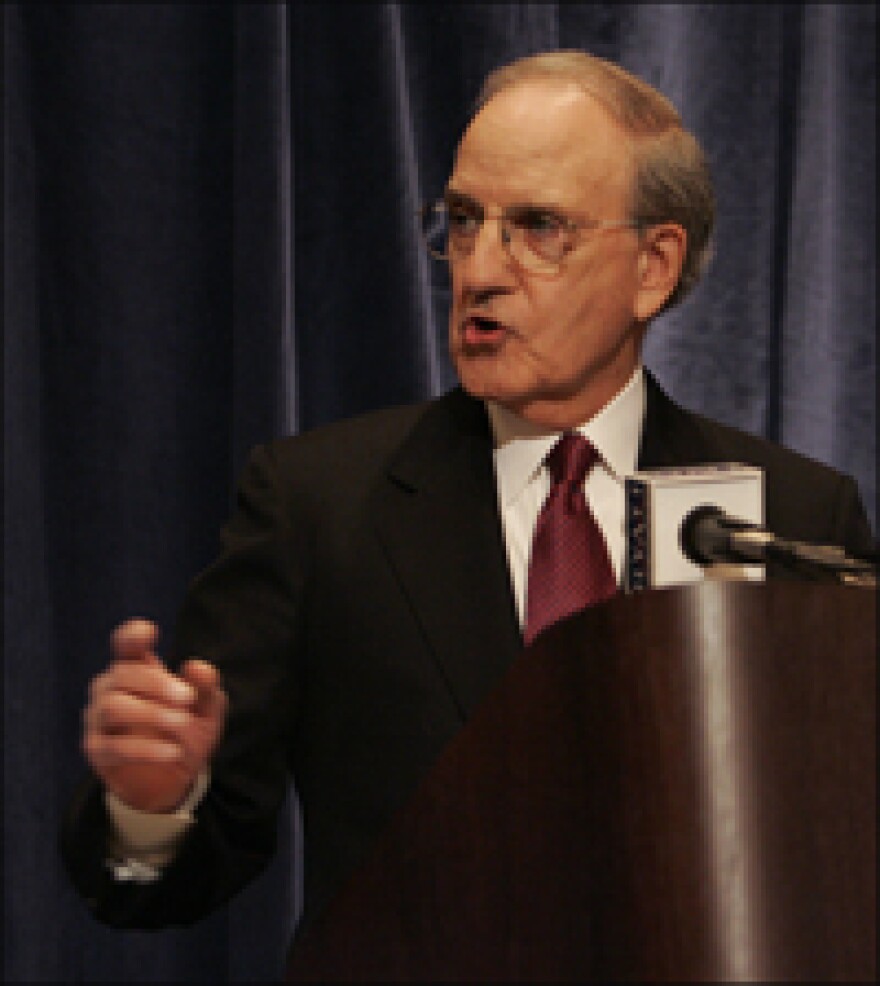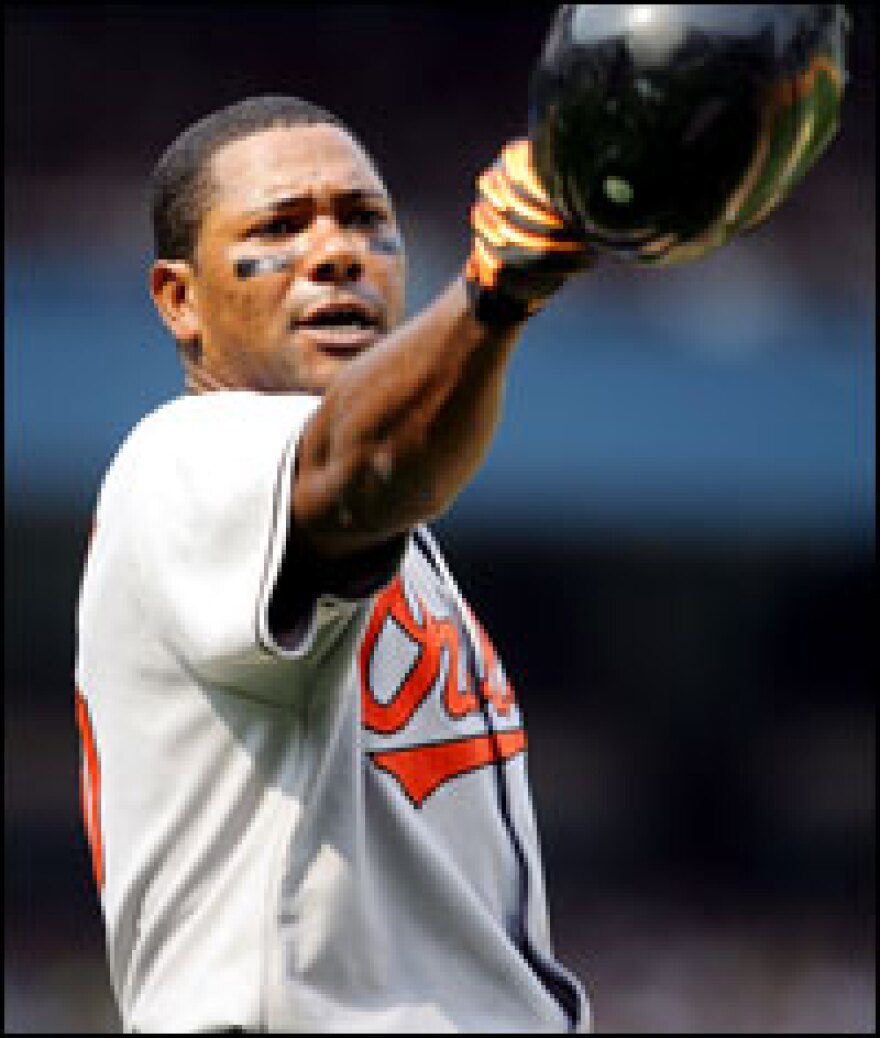




Major League Baseball has "a serious drug culture" in which steroid use is "widespread," says former Senate Majority Leader George Mitchell. His long-anticipated report on the use of performance-enhancing drugs in baseball was released Thursday, culminating 20 months of work.
No other sport in the U.S. has launched such a comprehensive investigation of doping within its own ranks. Here are some questions and answers about the report — and the problem it seeks to remedy:
What were the major findings of the Mitchell Report?
It found "a serious drug culture within baseball," one that touches every one of the 30 major league teams. The drugs in question include steroids and, increasingly, human growth hormones, which cannot be detected by standard urine tests. Mitchell named dozens of players — current and former — who have illegally used performance-enhancing drugs. The list includes stars such as Roger Clemens, Miguel Tejada, Andy Pettitte and Barry Bonds.
Whom does the report blame?
The report places blame on nearly everyone involved in baseball, including officials in the commissioner's office, the players' union, players and club owners. "There was a collective failure to recognize the problem as it emerged and to deal with it early on," Mitchell concluded. In his report, the former senator was especially tough on the players, the vast majority of whom refused to cooperate with his investigation.
Will players who used the performance-enhancing drugs be punished?
That's not likely. The alleged offenses occurred as many as nine years ago, and fully half of the players named have since retired. In addition, Mitchell implied that punishing offenders might be counterproductive. Major League Baseball Commissioner Bud Selig said the possibility of suspension would be considered on a case-by-case basis.
How long has steroid use been a problem in Major League Baseball?
For at least a decade, and probably much longer. The 1990s saw a surge in home runs and, not coincidentally, a surge in attendance, as well. There were rumors of illegal doping, but the baseball establishment — owners, players, fans — largely turned the other way, content to see the game bouncing back from the disastrous 1994 players' strike.
Hasn't that changed since then? Isn't baseball cracking down on the illegal use of performance-enhancing drugs?
Yes. It established mandatory random testing in 2003, and has steadily ratcheted up the penalties for offenders. The big turning point, from a public-relations standpoint, came in 2005, when Congress held hearings on the use of performance-enhancing drugs. Those hearings underscored the extent of the problem, even as some star players such as Mark McGwire and Sammy Sosa either denied using steroids or evaded questions about their use.
Why is the Mitchell Report getting so much attention?
Because no other sport in the U.S. has conducted such a comprehensive and thorough investigation into the use of performance-enhancing drugs. Mitchell spoke to all 30 Major League Baseball teams and conducted hundreds of interviews (though he did not have subpoena power). Allegations of illegal drug use hit home for many Americans. Many young players view the major league stars as role models, and in fact, hundreds of thousands of teen players have used performance-enhancing drugs themselves, according to Mitchell.
Why did Major League Baseball choose George Mitchell to conduct this investigation?
The former senator and prosecutor is widely respected, with a reputation for both toughness and fairness. He has led peace missions to Northern Ireland and the Middle East. He is also a lifelong baseball fan and was once considered a top candidate to be commissioner of Major League Baseball.
Why do players take steroids?
Because they work. They allow an athlete to build muscle bulk and endurance, mostly by speeding recovery from strenuous workouts. Some experts believe the drugs also enable athletes to run faster and react more quickly on the playing field.
Are steroids dangerous to a player's health?
Absolutely. Steroids can lead to relatively minor side effects — such as premature balding and acne — but also can cause serious medical conditions, such as liver disease and cardiovascular problems. They can also cause mood swings and suicidal thoughts.
Aren't steroids used for legitimate medical reasons?
Yes. They're used to treat everyone from cancer patients to children with growth problems. But the doses are usually much smaller than those taken by athletes, and the drugs are only available by prescription.
Has the steroid scandal hurt baseball's popularity?
It hasn't hurt attendance, which continues to rise.
Is the use of performance-enhancing drugs limited to baseball?
Not at all. Nearly every major sport is wrestling with this problem. How they deal with it, though, differs widely. The Olympics and professional cycling have the toughest testing regimens and the toughest penalties. After a slow start, baseball now has the harshest penalties of any U.S. team sport. Given the ringing indictment by the Mitchell Report, those penalties — and overall policing of performance-enhancing drugs — are likely to get even tougher.
Copyright 2023 NPR. To see more, visit https://www.npr.org.




